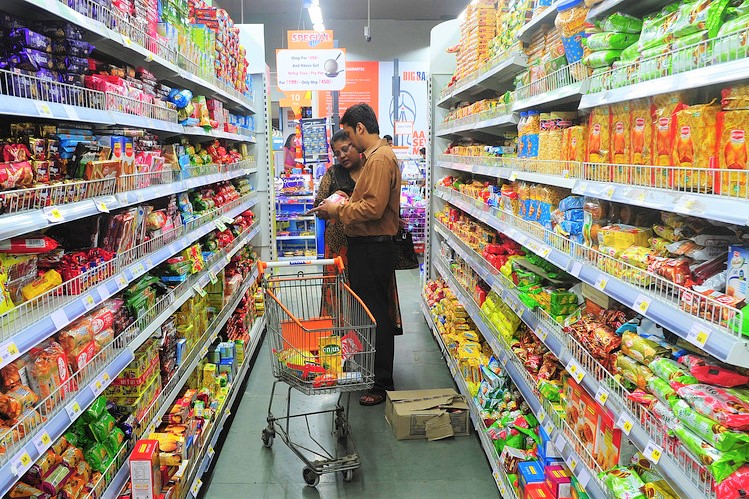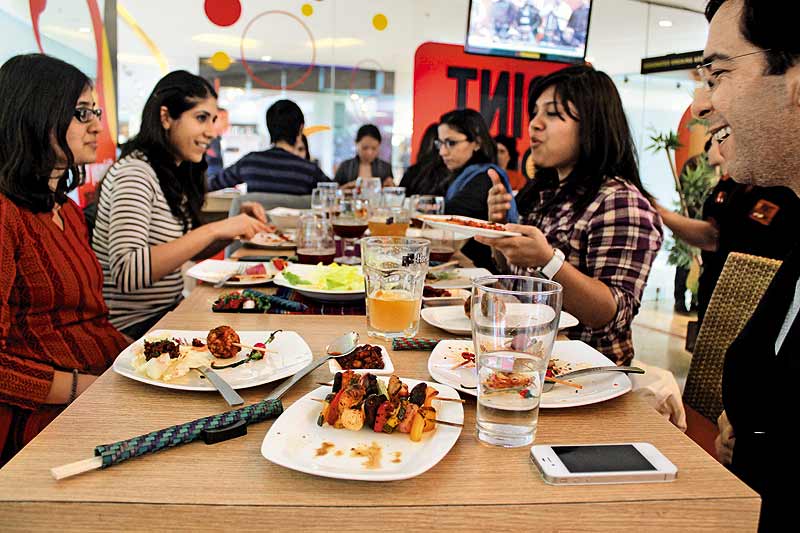Cheaper or Costlier? This is How GST Will Affect Your Everyday Life
If you have been wondering about how GST will affect your everyday life, here is a quick explanation about how this tax legislation will impact the prices of goods and services.

Since August 2016, when the 122nd Amendment (GST Constitutional Bill) was passed by the Rajya Sabha, India has been preparing to change the way it pays taxes. The new law, which is billed as independent India’s biggest reform initiative, is expected to improve compliance rates, increase government revenue and create a common national market by consolidating a web of local and central taxes into a single levy.

However, while the much-awaited GST regime finds itself one step closer to reality (the proposed date for GST implementation is July 1, 2017), the speculations and complex terminology around this intricate tax reform have left citizens worried about what it means for their pockets.
So if you have been wondering about how GST will affect your everyday life, here is a quick explanation about how this tax legislation will impact the prices of goods and services.
In a nutshell, GST appears to be a mixed bag with certain necessities getting cheaper, while the others are likely to disturb household budgets by getting more expensive. Also, the GST rates will depend on whether the commodity is used by a rich person or a common man, with the proposed rates being: 5%,12%, 18%, 28% (+luxury cess).
Note: There won’t be any tax (0% tax) on almost 50 % of items in the Consumer Price Index basket, including food grains, eggs, meat, milk, curd, salt, bread, fruits, vegetables, essential medicines, prasad, stamps, judicial papers, printed books, newspapers, bangles, silk and jute textiles etc.
Services like religious/pilgrimage travels, Haj yatra, metro travel, education and healthcare will also not be taxed. Good news for travelers as hotels with tariff below Rs 1,000 have also been exempted from GST.
| Slabs | New GST Rates | Current Rates | Products |
| 1 | 5% | Upto 9% | Edible oil, tea, coffee, spices
Processed food items Economy class airfares Solar panels |
| 2 | 12% | 9%-15% | Processed Food
Umbrellas and Mobiles Business class airfares |
| 3 | 18% | 15%-21% | Soaps, Shampoos, Hair oil, Tooth paste, Shaving Creams etc.
Budget hotels |
| 4 | 28% | 21% | Luxury Goods (Additional cess of upto 15 % may be put on luxury cars, tobacco, aerated drinks)
High-end hotels with Rs 5,000 plus tariff |
Things that may become cheaper:

- Fans, air coolers, lighting, water heaters, computer monitors, printers and other entry-level electronic items
- FMCG goods such as soaps, hair oil, toothpastes, over-the-counter drugs etc
- Pharma products, Insulin
- Processed food items, Biscuits
- Ready-made clothes, including branded apparel ( up to Rs 1,000)
- Footwear (those priced below Rs 500 will attract 5 % and those priced above Rs 500 will be taxed at 18 %)
- Movie tickets priced up to ₹100 (will be taxed at 18%)
- Two-wheelers
- Cement, paint and other construction material
- Solar panels, Point of Sale (PoS) machines and fingerprint scanners
- Economy class airfares
- Budget hotels and restaurants (Currently, 22 % is levied on hotels and restaurants)
- Cab rides (Currently, the effective rate of service tax is 6 % which will get reduced to 5 %)
- Kerosene, coal, domestic LPG
- SUVs and luxury cars (Currently, they attract an overall incidence of above 50 %, which would come down to 43 %)
Reason: For manufactured consumer goods, the current tax regime means the consumer pays approximately 24%-26% more than the cost of production due to VAT (value added tax) and excise duty. So with the GST rate expected to be 18% for most goods, they are expected to become cheaper.
Things that may become costlier:

- High-end hotels with Rs 5,000 plus tariff and restaurants that serve liquor
- Appliances like air conditioners, television, fridge, vacuum cleaner, dishwasher and washing machines
- Mobile bills and internet packs
- Jewellery and high-end accessories
- Rail transportation, air travel and rent-a-cab services
- DTH, Wi-Fi, cable TV and courier services
- Small and mid-sized cars (diesel as well as petrol)
- Tobacco/Cigarettes, Pan Masala, Aerated drinks
- Luxury personal care products like deodorants, perfumes, shampoos, shaving creams, hair dyes
- Insurance premiums, banking charges and school fees
- Online Shopping (however, this is expected to be balanced by lower costs of logistics and smoother inter-state transport because of a uniform tax rate)
- Movie tickets priced ₹100 or more (will be taxed at 28%)
- Gold and gold jewellery (will increase to 3 % tax rate. Currently, most states levy 1 % VAT on gold (except in Kerala, where VAT is 5 % ) and the central government imposes 1 % excise duty on it.
Reason: The effective service tax rate at present is 15% and it applies to almost all services (except essential ones such as ambulance services, cultural activities, sports events and certain pilgrimages). Under GST, this rate will increase to 18% making services by and large more expensive.
Also, luxury goods and services have been pegged at higher rate (along with an additional cess), with the rationale being that those who can afford luxury can afford taxes too.
The stage is set for the GST roll-out on July 1 from midnight, with a special session of the Parliament being convened for the historic launch. The GST council has also decided to set up an anti-profiteering committee which will take up complaints and recommend actions to ensure that the benefit of lower tax rates under the GST is passed on to consumers and industry does not jack up prices.The committee will have officials from the both central and state revenue departments.
Also Read: Here’s Why the Landmark GST Bill has the Potential to be a Gamechanger for India
Like this story? Or have something to share? Write to us: [email protected], or connect with us on Facebook and Twitter.
NEW: Click here to get positive news on WhatsApp!
If you found our stories insightful, informative, or even just enjoyable, we invite you to consider making a voluntary payment to support the work we do at The Better India. Your contribution helps us continue producing quality content that educates, inspires, and drives positive change.
Choose one of the payment options below for your contribution-
By paying for the stories you value, you directly contribute to sustaining our efforts focused on making a difference in the world. Together, let’s ensure that impactful stories continue to be told and shared, enriching lives and communities alike.
Thank you for your support. Here are some frequently asked questions you might find helpful to know why you are contributing?


This story made me
-
97
-
121
-
89
-
167













